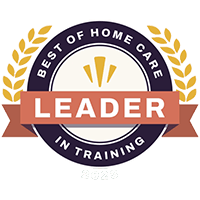You’ve probably turned on the news and heard about foods being recalled because of listeria. Listeria is a type of bacteria that can cause listeriosis, a form of food poisoning. Listeriosis primarily affects groups of people with weaker immune systems, such as the elderly. By following some rules while purchasing and preparing foods, you and your parents elderly care provider can protect them from listeriosis.
Listeriosis Symptoms
Listeriosis has many symptoms, and not all people will have the same experience. However, if you notice these symptoms in your parent, they may be an indicator of listeria:
- Fever
- Muscle pain
- Nausea
- Diarrhea
- Headache
- Stiffness in the neck
- Balance problems
- Confusion
- Convulsions
According to the Centers for Disease Control and Prevention (CDC), listeriosis symptoms often begin anywhere from one to four weeks after eating contaminated food. However, some people have had symptoms on the first day after exposure and some as many as 70 days after.
Preventing Listeriosis
There are a number of ways elderly care providers and family caregivers can protect seniors from listeriosis. Some of the things you can do are:
- Avoid unpasteurized milk and products that are prepared with unpasteurized milk.
- When shopping, keep raw meats separated from other foods. Make sure they are bagged separately, too.
- Be careful during food preparation. Wash hands frequently to avoid cross-contamination. Wash all fresh fruits and vegetables.
- Use separate cutting boards for produce and meats.
- Clean countertops, knives, and cutting boards after preparing raw foods.
- Make sure all meat products are cooked to safe internal temperatures.
- Be careful with food storage. Clean up any spills in the refrigerator, especially juices from hot dogs, poultry, and raw meat.
- Listeria can grow in the refrigerator. All meats and ready-made foods should be cooked, frozen, or eaten within two hours.
- Follow the advice on food labels concerning storage.
- If youre not sure a food is safe, throw it away. Reheating contaminated foods will not make them safe to eat.
Elderly care providers can help seniors to follow food safety procedures by assisting them with shopping and storing purchased foods safely. Elderly care providers can also assist with food preparation and ensure the senior is keeping their hands and cooking surfaces and utensils clean.
Sources
http://www.webmd.com/food-recipes/food-poisoning/tc/listeriosis-topic-overview
https://www.cdc.gov/listeria/faq.html
https://www.foodsafety.gov/poisoning/causes/bacteriaviruses/listeria/index.html
If you or an aging loved one are considering elderly care in St. Paul,MN, and the surrounding areas, please contact the friendly staff at CareBuilders at Home Minnesota. Call today 612-260-2273.








